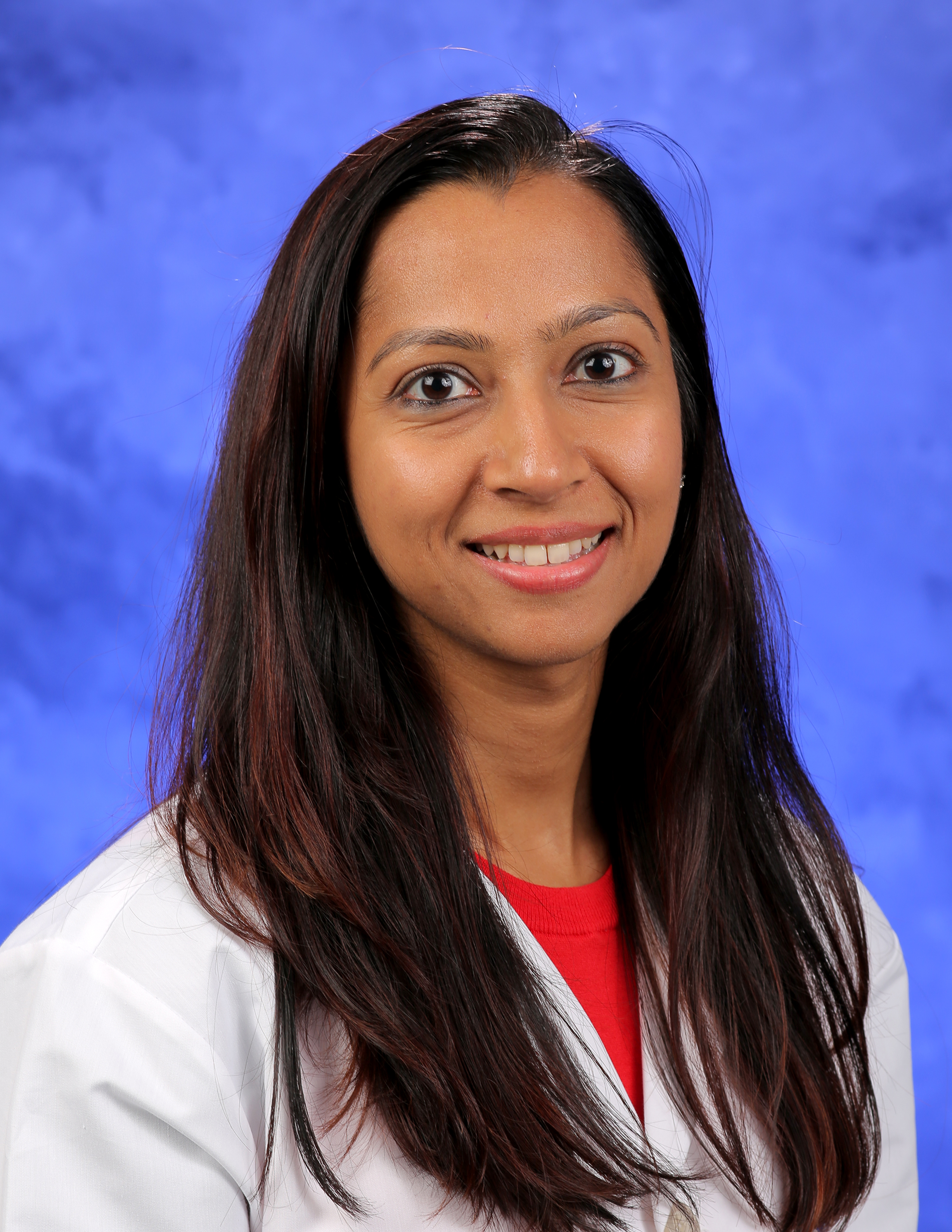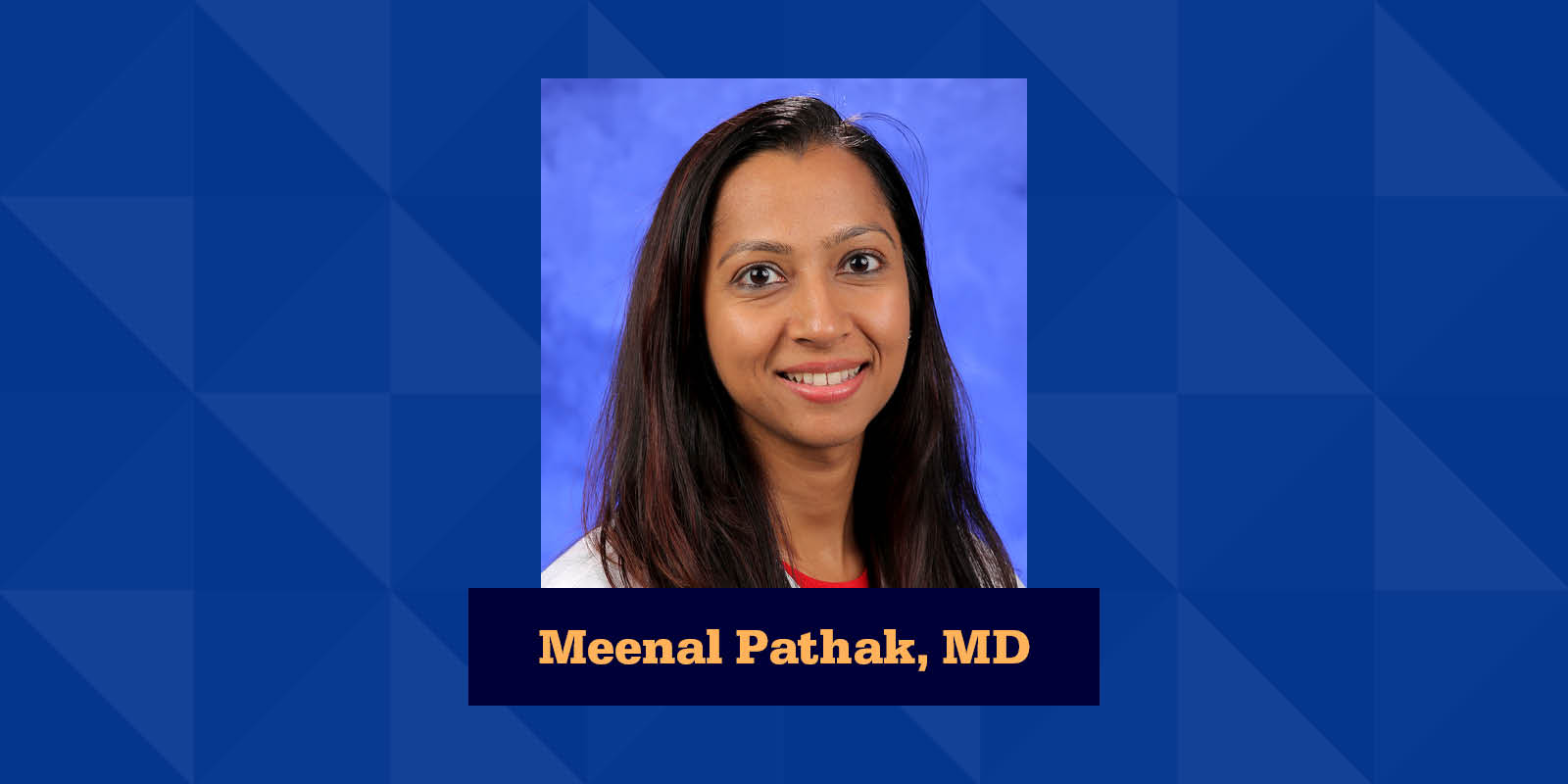
Children and Mental Health: Dr. Pathak Explains the Child Programs at PPI
Meenal Pathak, MD, wears several hats at Pennsylvania Psychiatric Institute (PPI). Dr. Pathak takes care of the child partial hospitalization program, which she has overseen since 2018, she also spends time in the child outpatient clinic, all the while being a Penn State assistant professor, and the president of PPI’s clinical staff.
“My main responsibility is caring for the kids who enter the partial program at PPI. When kids enter our program, I meet them to get their history, revise diagnosis and adjust medications as needed. The duration of our program is usually three weeks, though has sometimes been extended like we saw during COVID times due to patients who needed to be quarantined. Either a nurse practitioner or I see each child once a week during their stay, sometimes doing more check-ins if needed, and they attend group therapy every day. If a child is in crisis, our clinic staff will be the first to address the situation and let the providers know an evaluation is needed to decide if they need to go to the ER or home to their family. I also perform a discharge evaluation before any child is cleared from the program to make sure everything is squared away” explains Dr. Pathak.
Further describing the program, “Since the children do not go to school when going through our program, we have CAIU teachers at PPI. This way kids can continue their schooling while going through the program. We are in touch with their school counselors, provide collaborative care, psychiatry care and approved therapy. We also have a resource coordinator who helps set up aftercare appointments. The partial program can treat up to 45 patients at a time, with enough staffing. However, because of our need for more providers and nurses, our census for what we can currently handle runs closer to 35, which we were doing well with, until Covid hit.”
In March of 2020, all programs moved to telehealth, even the group therapy. Most of the staff was at PPI, but the patients were now at home. Kids were previously pulled from the group for their individual, family or psych evaluation session, but this could not be done with the new online meetings. So, a new plan was needed.
“Our resource coordinator stepped up and took on the responsibility of scheduling appointments for the psychiatrists, calling the families to do so. We had to update our screening practices and Intake forms so that they could be completed online. In July 2020, we started back in-person with a hybrid model, which unfortunately went back to telehealth during the surge in December, fully reintegrating to in-person January of 2021. The transitions were difficult, but our staff and team did well to quickly organize and continue running our programs” notes Dr. Pathak on Covid’s effect on the partial program and outpatient clinic.
“Though our team responded well, we still had our challenges. The severity of mental health worsened during and after Covid. Kids and families were more stressed out. Our inpatient unit has been at capacity for the past two years, so we don’t always have beds available for new patients. Patients coming from the ER would be there for a few days to stabilize before arriving at our inpatient unit. The children were admitted on the Pediatric floor where our consult team sees them and once cleared, they joined the inpatient unit. However, if no beds are available, they then wait on medical floor until we’re able to absorb them into partial program.”
“Similar to what was happening with our adult population, we were also seeing more acute youth patients. We were seeing kids with social anxiety from not leaving home for two years. Our partial hospitalization program helped with surge in mental health crises.”
“The stressors for children are different from adults. When evaluating a child, we consider the family home life, school life, friends, any bulling, stability and if there may be any abuse. Unlike adults, children are dependent on adults to get help for their needs. What we see the most of are diagnoses of PTSD, depression anxiety, autism, social, ADHD behavioral issues referred from aggression and OCDs.”
“When the schools close like due to Covid, or over the summer, some of the patients struggle. Some kids get school-based therapy, so they no longer get those services. Their counselors offer sessions, but the kids need to go to their office or use telemedicine. We found that virtual appointments can sometimes unfortunately hinder connection, as some don’t want to turn their camera on due to anxiety. Because of the difficulty connecting through school-based counseling thorough telehealth, returning to in-person meetings has helped.”
Under the guidance of Dr. Pathak over the past four years, the child partial program has restructured and developed.
“Our day-to-day workflow has changed. We have more streamlined processes for intake, medication administration and screenings. The program now has a nurse practitioner who helps to see patients during the week as well as address any crisis situations that may pop up. And though we have our challenges with nursing enrollment and staffing changes, our team works well to navigate through it.”
Dr. Pathak and her team have noticed that some adolescents struggle with engagement to see the program through. Because of this they are currently in the process of conducting a study on how they can improve compliance of program completion with outcome measures that affect which patients complete the program, and which will fail to complete. She hopes to find significant differences to then improve our parameters (which usually link to social determinants of health like transport, etc.).
“There is a HUGE need right now for mental health services. Our inpatient unit is always full, so having more partial programs available means we can help more people. Looking to the future, I would like to have a complement of telehealth services to help serve those living 2-3 hours away, so we can provide aid to a wider area.”
Through it all, Dr. Pathak stresses her gratitude for her team: “My team has been really great through Covid, and even now. They constantly keep their patients’ interest in mind and try to do the best for them and their families. I know it’s challenging for them, but the staff has been able to identify and address burnout sooner, in order to make sure their mental health is also taken care of.”
To learn more about the Child and Adolescent programs at PPI, click here, or call our Admissions Department at: 717-782-6493 or 866-746-2496.

